2013 Toyota FJ Cruiser Repair, Service & Tires
Get Started
Complete Auto Care for Your 2013 Toyota FJ Cruiser
-
TIRES FOR YOUR 2013 Toyota FJ Cruiser View Tire Info GET TIRE PRICING
-
REPAIR FOR YOUR 2013 Toyota FJ Cruiser View Repair Info SCHEDULE REPAIR
-
MAINTENANCE FOR YOUR 2013 Toyota FJ Cruiser View Maintenance Info SCHEDULE MAINTENANCE
-
OFFERS FOR YOUR 2013 Toyota FJ Cruiser Limited Time Tire Offers VIEW ALL COUPONS
2013 Toyota FJ Cruiser Tires
Recommended Tires | Tire Information
2013 Toyota FJ Cruiser Tires Sizes, Speed Ratings, and Inflation
Not sure about your 2013 Toyota FJ Cruiser tire size? Use the following chart to find information on tire size, speed rating, and inflation.
| Trim Level | Speed Rating | Inflation in PSI F/R | Tire Size |
|---|---|---|---|
| 2013 Toyota FJ Cruiser Base* | Q | 46 PSI/46 PSI | LT265/75R16/E |
| 2013 Toyota FJ Cruiser Base* | S | 32 PSI/32 PSI | P265/70R17 |
|
2013 Toyota FJ Cruiser Base* Speed Rating: Q Inflation F/R: 46 PSI/46 PSI |
|
2013 Toyota FJ Cruiser Base* Speed Rating: S Inflation F/R: 32 PSI/32 PSI |
* Note: these models have different tire sizes depending on vehicle options.
Recommended Tires for Your 2013 Toyota FJ Cruiser
What tires are best for a 2013 Toyota FJ Cruiser? Check out the following tire brands and types.
 ALENZA AS ULTRA
ALENZA AS ULTRA
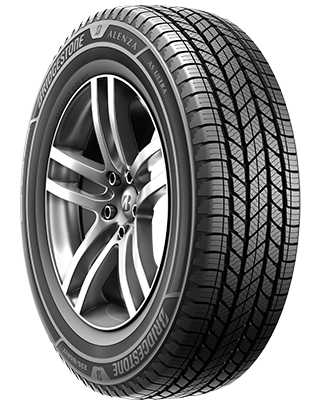
- No warranty
- All-Season
- Light Truck Tires
 Blizzak DM-V2
Blizzak DM-V2
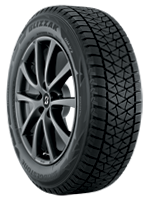
- No warranty
- Winter
- Winter
 Dueler A/T Revo 3
Dueler A/T Revo 3
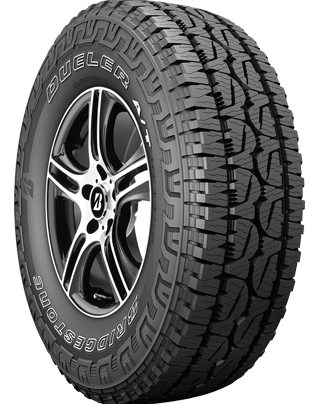
- Platinum Pact Limited Warranty
- All-Season
- Light Truck Tires
 Dueler A/T Revo 3 - LT
Dueler A/T Revo 3 - LT
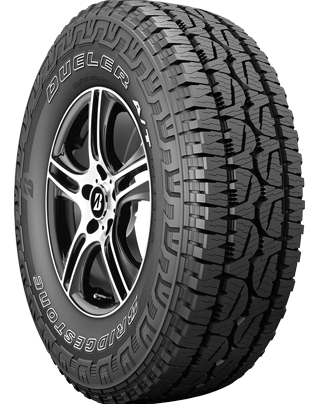
- Platinum Pact Limited Warranty
- All-Season
- Light Truck Tires
 Dueler A/T RH-S
Dueler A/T RH-S
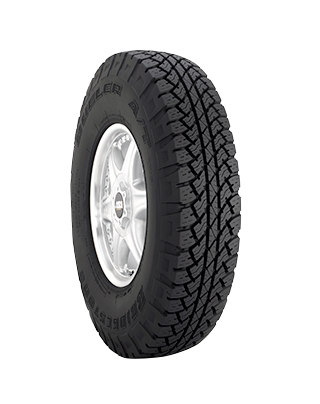
- Platinum Pact Limited Warranty
- All-Season
- Light Truck Tires
 Dueler H/T 684 II
Dueler H/T 684 II
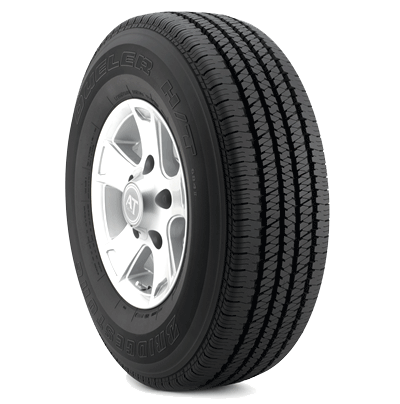
- Platinum Pact Limited Warranty
- All-Season
- Light Truck Tires
 Duravis M700
Duravis M700
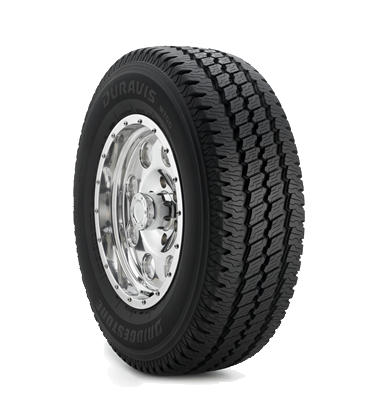
- Limited Warranty
- All-Season
- Light Truck Tires
 Duravis R500 HD
Duravis R500 HD
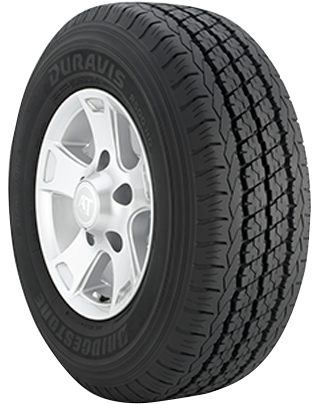
- Limited Warranty
- All-Season
- Light Truck Tires
 Destination A/T2
Destination A/T2
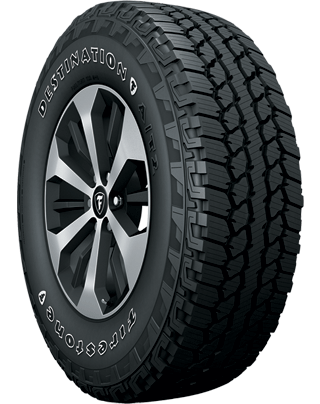
- Gold Pledge Limited Warranty
- All-Season
- Light Truck Tires
 Destination LE3
Destination LE3
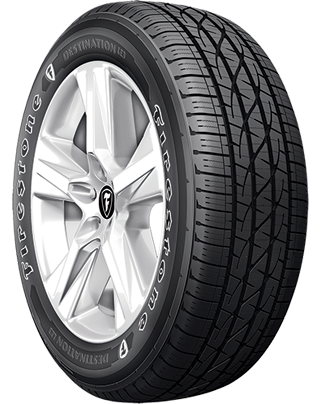
- No warranty
- All-Season
- Light Truck Tires
 Destination X/T
Destination X/T
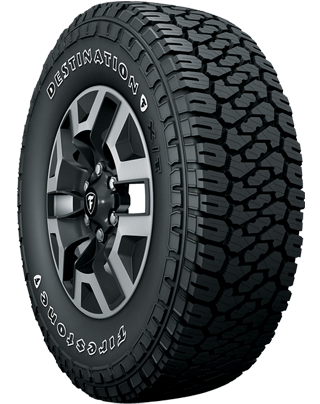
- Gold Pledge Limited Warranty
- All-Season
- Light Truck Tires
 Destination M/T2
Destination M/T2
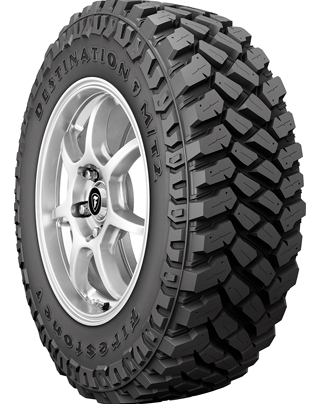
- No warranty
- All-Season
- Light Truck Tires
 Transforce AT2
Transforce AT2
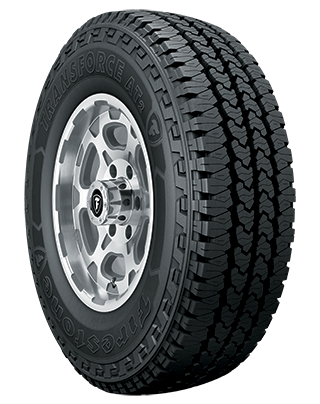
- No warranty
- All-Season
- Light Truck Tires
 Transforce HT2
Transforce HT2
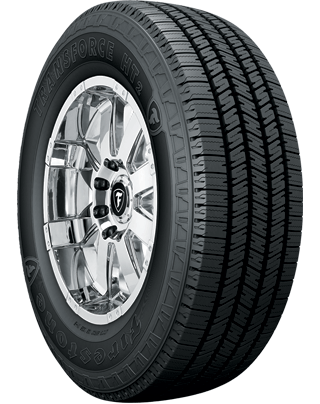
- Gold Pledge Limited Warranty
- All-Season
- Light Truck Tires
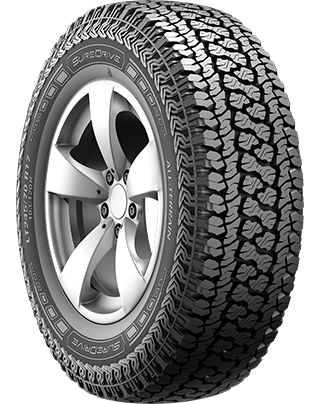
- No warranty
- All-Season
- Light Truck Tires
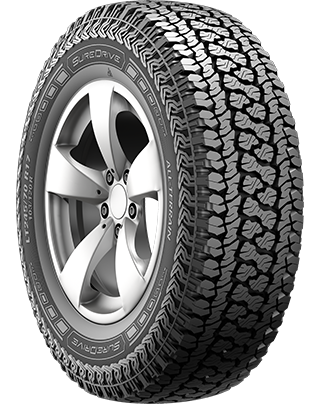
- No warranty
- All-Season
- Light Truck Tires
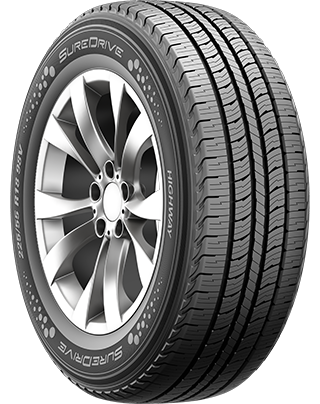
- No warranty
- All-Season
- Light Truck Tires
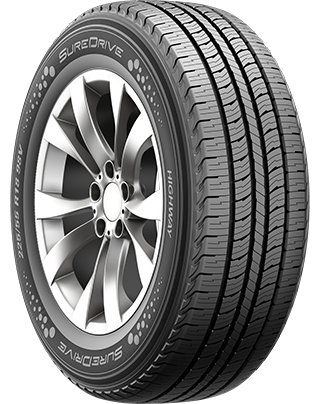
- No warranty
- All-Season
- Light Truck Tires
 OPEN COUNTRY A/T III
OPEN COUNTRY A/T III
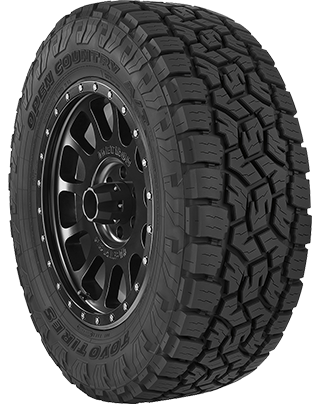
- No warranty
- All-Season
- Light Truck Tires
 OPEN COUNTRY R/T
OPEN COUNTRY R/T
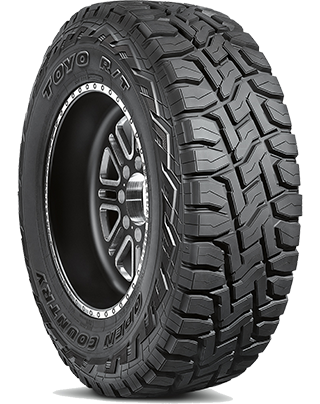
- No warranty
- All-Season
- Light Truck Tires
About 2013 Toyota FJ Cruiser Tires
Apart from finding the right tire size, you also want to consider a handful of other factors when buying new Toyota FJ Cruiser tires like which tire brands you like most and where you drive. Think about where you live (countryside vs. city vs. mountains) and the kind of unexpected weather you're likely to experience when evaluating your driving conditions. Drivers in states that fully experience all four seasons often buy two sets of tires: one for winter and one for summer. Other drivers prefer the convenience of all-season tires. They make one trip to the tire shop and they're pretty much ready for rain, light snow, or sun!
Your personal driving style is the next factor to consider. If you're an avid off-roader who yearns to pioneer new paths, you have very different tire needs than a highway commuter who doesn't hit the hills very often. Visit your local Firestone Complete Auto Care for help selecting the tire that's right for you, or get started by browsing tires that fit your Toyota FJ Cruiser.
Installing Toyota FJ Cruiser Tires
Firestone Complete Auto Care installs more tires on more cars than most other companies. We're your tire shop and a complete service center for tire installation, maintenance, repair, rotation, and alignment! We make it easy to buy new 2013 Toyota FJ Cruiser tires online and book an installation appointment at the same time.
Questions About 2013 Toyota FJ Cruiser Tires
-
Why does Toyota tire inflation matter? The right tire pressure can make all the difference. Proper tire inflation helps increase fuel economy, improve braking time, and boost tire lifespan! Even a small change in tire pressure can impact your driving.
-
Why are there numbers on the side of my Toyota FJ Cruiser tires? Your tire sidewall gives you information about load carrying capacity, speed rating, treadwear, traction, and tire size. Talk to one of our tire technicians to learn how to read the numbers on your tire!
-
How do I check the tread depth on my Toyota tires? Stay on top of your tire tread depth to help avoid a dangerous drive. You can check tread depth with a penny. Hold the penny so that Abraham Lincoln is facing you, then place your penny into a tread groove upside down. If you can see the top of Abe’s head, your tread is shallow and it might be time for new Toyota FJ Cruiser tires. Grab a penny. Hold the so that Abe Lincon's head is facing you and his hair is pointing toward the ground. Then, place the penny into a tread groove. If you can see the top of Abe’s head, your tread is shallow and it might be time for new Toyota FJ Cruiser tires.
2013 Toyota FJ Cruiser Repair
How do I learn more about auto repairs? Click on a service below to read about the types of Toyota FJ Cruiser repairs we do at Firestone Complete Auto Care.
About 2013 Toyota FJ Cruiser Repairs
For most drivers, the words “car repair” don’t exactly spark excitement. But at Firestone Complete Auto Care, we strive to give you the excellent repair experience you deserve. When you come to us for 2013 Toyota FJ Cruiser repair services, our technicians will take care of your FJ Cruiser like it was their own. We’ll start by assessing what repairs may be needed, and we’ll provide you with a detailed explanation of what we recommend. If a repair isn't necessary, we won't recommend it.
What Will Toyota FJ Cruiser Repairs Cost?
Several factors can affect the cost to repair your 2013 Toyota FJ Cruiser, including the type of repair, the cost of any replacement parts, the amount of labor necessary to get the job done, and your locale. No matter what state you’re in, be sure to look through our offers and online coupons for repairs.
A few different aspects can influence repair costs for your 2013 Toyota FJ Cruiser, like
2013 Toyota FJ Cruiser Auto Repair Q&A
-
Do I need to follow Toyota's maintenance schedule? The cheapest 2013 Toyota FJ Cruiser repair is the one that isn’t necessary in the first place! Staying up-to-date with your car’s scheduled maintenance services is a great way to keep future repair costs low.
-
Should I bring my Toyota in even if I can't pinpoint the problem? No, we’re not talking about finding the best jams on the radio! You know your car best, and you’re the first person who will notice if something doesn’t feel right (like new smells, sights, or sounds coming from your car). If you sense that something is 'off,' stop in for a Courtesy Check to have these symptoms checked out ASAP. Early action could help you prevent Toyota FJ Cruiser repairs.
-
Why do you recommend certain repairs for my Toyota? Trust is more than just a saying on the wall. It’s a window underneath it. That’s why we won’t recommend services or repairs for your 2013 Toyota FJ Cruiser unless we think they’re vital to your safety on the road.
Brake Repair for Your 2013 Toyota FJ Cruiser
Your Toyota FJ Cruiser may be powered by a strong engine. But if you can’t stop it, it’s as good as scrap metal. If you’re experiencing squeaky brakes or a loss of braking power, don’t wait! Safe driving and responsive brakes go hand in hand. Plus, waiting can lead to more expensive parts wearing out and requiring replacement. Get your 2013 Toyota FJ Cruiser brakes fixed at Firestone Complete Auto Care. We offer a variety of brake services like brake pad/shoe removal and replacement, brake rotor/drum resurfacing, brake fluid exchange, and brake caliper and wheel cylinder installation.
Answers to Your FJ Cruiser Brakes Questions
-
Why is my FJ Cruiser shaking as I brake? If your FJ Cruiser shakes when you brake, you could be dealing with warped rotors, faulty brake calipers, worn brake pads or rotors, or loose or worn suspension parts. Schedule a free brake inspection at Firestone Complete Auto Care for help diagnosing your brake issue.
-
How often do I need to replace my FJ Cruiser brake pads? Brake pads generally last between 30,000 and 40,000 miles. Your driving can affect how long your FJ Cruiser brake pads last, though. For example, mainly driving on highways and gradually braking can help increase the lifespan of your brake pads, and carrying hefty loads or riding your brakes can shorten it.
-
Does brake fluid leak when the car is off? Your FJ Cruiser brake system is a closed hydraulic system, so a brake fluid leak likely means you have an issue in your brake system. Over time, brake components can wear out or get damaged, causing a brake fluid leak.
When to Get Toyota FJ Cruiser Drivetrain Repairs
You don't want to go to just anyone for drivetrain repair. Drivetrains for front, rear, and all-wheel-drive and 4WD vehicles are all different. You want to go to Firestone Complete Auto Care. We can fix many 2013 Toyota FJ Cruiser drivetrain components Your Toyota FJ Cruiser may need driveshaft attention if you feel heavy vibrations in your floorboards, clunks when shifting, resistance when turning, or vibration as your vehicle accelerates.
Questions About 2013 Toyota FJ Cruiser
-
What are signs my Toyota drivetrain is damaged? Hear noises toward the back of your Toyota FJ Cruiser? See fluid leaking? Having issues turning? These could all be signs of drivetrain damage you don't want to ignore. Take action quickly to catch repairs or replacements before something more severe happens.
-
What causes a FJ Cruiser’s malfunction indicator light (MIL) to illuminate? The malfunction indicator light — also known as the check engine light — on your FJ Cruiser can illuminate for a variety of reasons, including engine issues, electrical problems, damaged sensors, transmission problems, misfires, and faulty connections.
-
Is a drivetrain malfunction in my FJ Cruiser serious? If you experience a drivetrain malfunction in your FJ Cruiser, it is important to have it inspected by a professional mechanic as soon as possible to identify the underlying cause and perform the necessary repairs. Driving with a malfunctioning drivetrain can be dangerous and cause further damage to your car.
2013 Toyota FJ Cruiser Wheel Alignment
An alignment involves making adjustments to your Toyota FJ Cruiser's suspension system, the connection between the vehicle and the wheels. In an alignment service, calculated changes are made to the angles of your tires. This is so that your tires hit the road at an optimal angle for your vehicle’s performance — just as Toyota intended. When you bring in your 2013 Toyota FJ Cruiser, we’ll perform an alignment check first. Then, we’ll adjust the angles as needed until they match recommended measurements from Toyota.
Toyota FJ Cruiser Alignment Questions
-
How can I avoid knocking my Toyota FJ Cruiser out of alignment? Potholes and uneven roads can knock your car out of alignment, so stay aware of the road ahead and adjust your speed (or avoid these obstacles whenever it’s safely possible).
-
How often should you get a wheel alignment for your FJ Cruiser? Generally, it’s wise to have your alignment looked at around every 6,000 miles or 6 months, whichever happens first. You should check your FJ Cruiser owner’s manual to verify Toyota’s suggested interval.
-
Does getting new FJ Cruiser tires mean you need an alignment? It’s likely not a requirement to get an alignment when you install new tires on your FJ Cruiser, but it's a smart idea to do so anyway. An alignment can help ensure even tire wear, smooth handling, and better fuel efficiency.
2013 Toyota FJ Cruiser Engine Repair
If your 2013 FJ Cruiser engine needs repairs, our technicians will provide you with a thorough explanation beforehand. We don't start working until we have your approval. If a repair can wait, we'll let you know. We'll also tell you if it's necessary for your safety. We want to provide you with the information you need to make an informed engine repair decision. Choose Firestone Complete Auto Care for Toyota FJ Cruiser engine repairs and you can drive easy knowing that we use Toyota-approved parts and fluids — cambelt, valve guide seal, fuses, or other parts.
Questions About 2013 Toyota FJ Cruiser Engines
-
Why does the check engine light come on when I start my FJ Cruiser? It’s usually normal for your check engine light to turn on upon ignition. This is just your FJ Cruiser testing its circuits. The dash light shouldn't stay on. If it does, you might want to bring your vehicle in for service.
-
Why does my Toyota engine sound different? Strange under-the-hood noises can point to problems within your Toyota FJ Cruiser engine. Tapping or knocking could mean you need an oil change. Whistling sounds could mean you have an intake leak or misaligned belt. Squealing may be caused by a loose fan belt, and grinding could be a sign that something is wrong with your brakes — not the engine.
-
What could damage a Toyota engine? Some driving habits are not so great for your engine. These include driving on a near-empty gas tank, flooring the gas pedal while the car is in Park, or accelerating too quickly, too soon. Protect your engine’s performance and efficiency by distancing yourself from these habits.
2013 Toyota FJ Cruiser Tire Repair
Firestone Complete Auto Care is here for you when your 2013 Toyota FJ Cruiser needs flat tire repair or inspection. There’s a chance your tire could be plugged and patched (rather than replaced). Our technicians can inspect your tire and let you know if it is safe to repair. We'll start by evaluating the state of wear, the location of damage, type of damage, and the size of the damage.
If a repair on your 2013 Toyota FJ Cruiser tire is feasible and safe, we’ll get to work on the steps to fix it: (1) Take the tire off the wheel for easy inspection, (2) use a filler to close up the puncture (this is to keep moisture from getting in), and (3) secure and seal the inner tire liner to ensure the tire is airtight.
Your Questions About Toyota FJ Cruiser Tire Repair, Answered
-
What happens if I drive my Toyota on a flat tire? Driving on a flat tire is not a good idea. Your FJ Cruiser engine will keep running with a flat tire, but you could damage your wheel by continuing to drive on a flat.
-
Will a temporary sealant fix my Toyota's flat tire? A temporary sealant may be able to help you get to a repair location safely. But temporary or emergency sealants could possibly damage TPMS sensors, and in some cases may even void the warranty on your Bridgestone or Firestone tires. If your tire needs extensive repair, sealant can add time and labor costs to the process.
-
What is causing the tires on my FJ Cruiser to keep losing air? Tire punctures, damaged wheels, and leaking valve stems are possible reasons for your FJ Cruiser tires continuously losing air.
2013 Toyota FJ Cruiser Maintenance
When it comes to your Toyota FJ Cruiser, how you treat your car makes all the difference in its performance. With proactive maintenance, your FJ Cruiser could be on the road well past the 200,000 mile mark.
2013 Toyota FJ Cruiser Maintenance Schedule
What is the manufacturer recommended maintenance schedule for a 2013 Toyota FJ Cruiser? Find maintenance info for your vehicle.
About 2013 Toyota FJ Cruiser Scheduled Maintenance
Instead of waiting for an issue to arise with your FJ Cruiser, you can stay ahead of problems before they even begin. It’s as easy as following the recommended maintenance schedule that’s been written specifically for your 2013 Toyota FJ Cruiser! This recommended maintenance schedule is written by the auto manufacturer, Toyota themselves. Scheduled maintenance services can vary depending on driving conditions, climate, and other factors; however, there’s a good chance that your vehicle’s recommended maintenance services will include oil changes, tire rotations, brake pad replacement, filter changes, and fluid checks and exchanges. Scheduling routine service appointments is one of the best ways to help extend your FJ Cruiser's life, increase your vehicle safety, and maybe even save you the headache of dealing with common 2013 Toyota FJ Cruiser problems in the future.
Learn About Vital Maintenance Needs for Your Toyota FJ Cruiser
Come to Firestone Complete Auto Care for manufacturer-recommended routine maintenance on your 2013 Toyota FJ Cruiser and a skilled technician will start the appointment with a Courtesy Check. The Courtesy Check helps us see what we’re working with under the hood, and allows us to alert you to any potential problems before they worsen. Each Courtesy Check includes a free battery test and an inspection of your FJ Cruiser's windshield wiper blades, head and tail lights, filters, fluid levels, tires, and alignment.
Firestone Complete Auto Care is the place to go for 2013 Toyota FJ Cruiser maintenance. Don’t wait until something goes wrong with your car. Visit your nearest location for proactive maintenance today.
Questions About 2013 Toyota FJ Cruiser Maintenance
-
What should I do after hitting a pothole in my Toyota FJ Cruiser? You know your Toyota FJ Cruiser better than anyone else, so you’ll know if something doesn’t feel right while driving. Have your alignment checked (and adjusted if necessary) as soon as you notice a pulling steering wheel to prevent suspension damage or uneven tire wear.
-
When should I use high mileage oil in my Toyota FJ Cruiser? If your Toyota FJ Cruiser has ticked past 75,000 miles, consider switching to high mileage oil at your next oil change to give your engine what it needs to go another 75,000 (or more!). High mileage oil: make it a high priority!
-
Can Toyota dashboard warning lights wait? It's better to get them addressed as soon as possible. An illuminated dashboard light means something in your vehicle isn't functioning like it should. Letting problems linger can mean bad news for your Toyota FJ Cruiser, so be sure to take your car in for service as soon as you notice an illuminated dashboard light.
Battery Size & Replacement for 2013 Toyota FJ Cruiser
Not sure what battery to get for your Toyota FJ Cruiser?
| Battery | Engine | Warranty | Cold Cranking Amps | |
|---|---|---|---|---|
| 24F-3 | V6/4.0L | Replacement 24 months | Performance months | 650 |
| 24F-6 | V6/4.0L | Replacement 36 months | Performance months | 750 |
| 24F-RP | V6/4.0L | Replacement 48 months | Performance months | 750 |
2013 Toyota FJ Cruiser Batteries
Generally, car batteries last from three to five years. You want to replace your 2013 Toyota FJ Cruiser battery before it fails and leaves you stranded. Look out for symptoms of a faulty car battery. A sluggish engine start, an illuminated battery or check engine light, swollen battery case, corroded battery terminals, and subpar electrical performance can all signal that your battery needs attention.
You can also get a Free Battery Test at your local Firestone Complete Auto Care. Drop in for a free battery check and, if needed, a replacement battery for your 2013 Toyota FJ Cruiser. Car batteries are one of our many specialties! Our technicians are well-acquainted with Toyota’s service specs for FJ Cruiser battery cold cranking amps and reserve capacity. Get help choosing the battery size that's best for your FJ Cruiser, and schedule an appointment today for a quick car battery replacement.
Top Toyota FJ CruiserCar Battery Questions
-
Why won’t my Toyota FJ Cruiser battery hold a charge? A battery that won't hold a charge is almost as good as dead. The battery might be old. Or, you may have a habit of leaving your car doors open and the lights on overnight. Stop by for a free battery test at your local Firestone Complete Auto Care to learn more about the state of your battery.
-
How long can I expect my car battery to last? Car battery lifespan varies depending on a few factors, including driving conditions, accessories, how well it’s maintained, and the type of battery. On average, a car battery lasts about three to five years.
-
What is the white, crusty substance accumulating on my FJ Cruiser’s battery post? The white, crusty stuff that can accumulate around FJ Cruiser car battery terminals is called corrosion. It is caused by a chemical reaction between the battery acid and the air, which creates a white, powdery substance that can build up on the terminals over time. Corrosion can interfere with the flow of electricity between the battery post and the car's electrical system, sometimes leading to poor electrical performance, difficulty starting, and even premature battery failure.
Oil Changes for 2013 Toyota FJ Cruiser
Your 2013 FJ Cruiser’s oil should be changed according to Toyota’s recommended oil change intervals. No matter the mileage, your FJ Cruiser may need its oil changed ASAP if your check engine light is on, you hear knock knock knock coming from the engine, smell oil inside the car, or notice excess vehicle exhaust. You may also need an oil change more frequently than Toyota recommends if you haul heavy loads, frequent dusty roads, go off-roading a lot, or go at low speeds on long distance trips.
Your local Firestone Complete Auto Care has the right 2013 Toyota FJ Cruiser motor oil: either synthetic or conventional. Consult Toyota's recommendations to select the right 2013 FJ Cruiser oil and talk with a teammate to learn more about our oil options: Quaker State® Advanced Durability™ conventional oil, Pennzoil® High Mileage Vehicle® motor oil, Pennzoil Platinum® Full Synthetic motor oil with PurePlus™ Technology, and Shell Rotella® heavy-duty engine oil. During an oil change, one of our techs will change your FJ Cruiser’s oil, replace and recycle your used oil and oil filter, inspect the rest of your car’s filters, top-off important fluids, and perform a courtesy inspection on your entire vehicle. Let the experts take care of your FJ Cruiser’s engine by making an oil change appointment today.
2013 Toyota FJ Cruiser Oil Change Questions
-
What can cause the oil light on my Toyota FJ Cruiser to illuminate? Your Toyota FJ Cruiser oil change reminder light might illuminate if it’s been too long since your last oil change. On the other hand, the oil pressure light might illuminate due to a clogged oil filter, a faulty oil pressure sensor, low engine oil levels, or a malfunctioning oil pump.
-
Can I change my Toyota FJ Cruiser oil at home? Changing engine oil at home isn’t as simple as it’s made out to be. You’ll have to figure out how to properly dispose of the oil and buy special tools. Having your oil changed professionally can not only reduce the risk of something going wrong during the service, but it’ll also help your car perform smoothly down the road.
-
Why is my Toyota exhaust smoke gray or blue? Your engine could be burning oil due to a leak. It may be time for a pro to take a look. A leak can be caused by a variety of issues including faulty valve seals, blown piston rings, or damaged cylinder walls.
2013 Toyota FJ Cruiser Engine Tune-Ups & Maintenance
Routine engine tune-ups can bring power back to your FJ Cruiser. Your local Firestone Complete Auto Care offers a range of engine tune-up services for your 2013 Toyota FJ Cruiser. The first is the standard Firestone Tune-Up. The standard Firestone Tune-Up includes new spark plugs (and installation!), a thorough inspection of engine components, and a lifetime parts warranty*. A second service option replaces the air and fuel filter in your FJ Cruiser. Yet another service is a fuel system cleaning process, which involves removing varnish, dirt, and carbon deposits that have built up inside the fuel injectors, throttle body, and throttle plate in your FJ Cruiser. The result? Restored fuel system performance. Consider this when choosing a tune-up service for your FJ Cruiser: your vehicle’s maintenance record and mileage can determine which service is best. Ask one of our technicians what your vehicle needs, based on your driving habits and your car’s current condition.
*Talk to a Firestone Complete Auto Care teammate for full terms and conditions on warranties.
Common Engine Tune-Up Q&A for 2013 Toyota FJ Cruiser
-
Will it hurt my Toyota FJ Cruiser to drive with old spark plugs? When it’s time to replace the spark plugs, don’t delay. These small (but vital!) parts provide the electric spark that your car needs in order to start, and old spark plugs can prevent your car from starting at all. Replace spark plugs on time or about every 30,000 miles or so.
-
What does a puddle underneath my Toyota FJ Cruiser mean? Don't ignore puddles of fluid under your Toyota FJ Cruiser. It could signal a coolant leak, brake fluid leak, or an oil leak. Let any one of these leaks linger and it could cause engine damage.
-
How often do Toyota FJ Cruiser fuel injectors need to be cleaned? The frequency at which car fuel injectors should be cleaned can vary depending on several factors, including the type of fuel used and the driving conditions. Some manufacturers generally recommend a fuel system cleaning as part of your general car maintenance, or as needed based on symptoms of poor fuel system performance.
2013 Toyota FJ Cruiser Suspension Service & Repair
When you first drove your 2013 Toyota FJ Cruiser, the ride was probably so smooth that you didn’t even think about it! Lately, though, your ride’s been feeling a little bumpy. Maybe your FJ Cruiser jolts, drifts to one side, or makes an unusual noise when going over a speed bump. The first sign of trouble is the best time to bring your 2013 Toyota FJ Cruiser in for suspension and steering service. We’ll get to the source of your car problems and, if your FJ Cruiser suspension system needs repair, we’ll explain what your car needs and how much it’ll cost to get it done. We won't begin any work without your permission.
Questions About 2013 Toyota FJ Cruiser Steering & Suspension
-
Why does my Toyota FJ Cruiser bounce so much? If your shocks or struts are in bad shape, they can’t dampen road bumps like they should. This can cause your FJ Cruiser to bounce more than usual.
-
Why does my FJ Cruiser tilt forward when I hit the brakes? The forward momentum and weight transfer to the front wheels during braking can cause your FJ Cruiser's front end to dip forward. A damaged or faulty suspension system may fail to distribute the weight and force effectively, causing the front end to dip even more.
-
What role do tire pressure and tread depth play in my Toyota's suspension? Maintaining your tires can help reduce strain on the suspension, nd also let you know when it's time to replace your tires. A faltering steering and suspension system could lead to uneven tire wear.
A/C Service for Your 2013 Toyota FJ Cruiser
Our trained technicians will do what they can to solve your 2013 Toyota FJ Cruiser A/C problems. In this A/C performance inspection, we’ll check out the current condition of your 2013 Toyota FJ Cruiser A/C system to determine whether repair work is needed. This check will include an examination of system pressure, a visual inspection, and a leak test.
While your 2013 Toyota FJ Cruiser’s air conditioner is being serviced, we’ll also do an A/C evacuation and recharge. To start this process, a technician will flush out the old refrigerant from your vehicle’s A/C system. Then, they’ll perform an evacuation (also known as a discharge) on the entire system per Toyota guidelines. The A/C system is recharged with new refrigerant.
Frequently Asked Questions for 2013 Toyota FJ Cruiser A/C Systems
-
Why is my FJ Cruiser A/C blowing hot air? Maybe your A/C starts cool but then gets warm. Or maybe it never gets cold in the first place. Either way, your A/C troubles could be traced back to a clogged expansion valve, faulty compressor clutch, blown fuse, or leak.
-
How does my A/C system get a leak? Over the years, the rubber seals and gaskets in your FJ Cruiser’s A/C system naturally degrade. Moisture can get into the system and cause a malfunction, or parts can simply wear out so that your system no longer seals properly.
-
Why does my vehicle have to be moving for my FJ Cruiser’s A/C to work? Damaged or worn components in your FJ Cruiser’s electrical or air conditioning system can cause the A/C to only work when the car is moving. You may be dealing with low coolant or a faulty cooling fan.
Transmission Services for 2013 Toyota FJ Cruiser
Your transmission carries power from the engine to the wheels so that you can drive at the speed you desire. Because of the transmission’s responsibility to translate the right dose of power into the right amount of speed, even the smallest transmission problems should be addressed right away. 2013 Toyota FJ Cruiser transmission problems can show up as shifting delays, grinding or jumping during acceleration, the car shaking on the road, or whistling noises or a burning smell coming from beneath the hood. Let Toyota FJ Cruiser transmission problems linger and you might notice your fuel economy decrease or find that you can't drive your FJ Cruiser at all. Our technicians are trained to service 2013 Toyota FJ Cruiser transmission systems according to vehicle manufacturer recommendations. As soon as you suspect something’s wrong with your FJ Cruiser’s transmission, book an appointment at your local Firestone Complete Auto Care to help diagnose, treat, and prevent major transmission issues.
Questions About 2013 Toyota FJ Cruiser’s Transmission
-
When should I have my FJ Cruiser's transmission fluid checked or exchanged? Regularly checking and exchanging your 2013 FJ Cruiser’s transmission fluid is one of the best ways to help the transmission system perform. Some technicians would say that between 30,000 and 60,000 miles is a good timeframe for having your Toyota's transmission fluid checked and replaced, but that timeline can vary depending on how your vehicle is used and your manufacturer’s recommendations. The good news is that transmission fluid leaks are affordable to repair and easy to spot.
-
Can my Toyota FJ Cruiser leak transmission fluid? Yes, your Toyota FJ Cruiser can develop a transmission fluid leak. As your FJ Cruiser ages, parts of the transmission system might wear out or break down, leading to a leak and possible transmission issues. Common causes of transmission fluid leaks include worn seals, a damaged transmission housing, a loose or cracked transmission pan, an overfilled transmission, or faulty transmission lines.
-
Can I drive my Toyota FJ Cruiser with a transmission fluid leak? You should avoid driving with a transmission fluid leak. Your transmission system relies on transmission fluid to operate properly, and a leak may decrease performance, cause your FJ Cruiser to overheat, or even lead to transmission failure.
Vehicle Inspection for 2013 Toyota FJ Cruiser
At Firestone Complete Auto Care, we perform a multi-point Courtesy Check during any vehicle service. To start, one of our technicians will check the battery in your Toyota FJ Cruiser to determine how much charge remains. The check will continue with a visual inspection of your Toyota FJ Cruiser's windshield wiper blades, lights, filters, alignment, tires, hoses, belts and fluid levels.
While every visit to your local Firestone Complete Auto Care includes a Courtesy Check, we can also dig deeper and perform a Complete Vehicle Inspection on your 2013 Toyota FJ Cruiser if you prefer. A Complete Vehicle Inspection includes everything in a Courtesy Check, plus an examination (by hand!) of your steering and suspension system, brakes, and exhaust components. With this inspection, we want to help you stay on top of any issues that may require preventative maintenance.
In some cities or states, you may be able to take care of your state inspection or safety test at your local Firestone Complete Auto Care. Inspections are performed on a state-by-state basis and requirements vary.
FAQs for 2013 Toyota FJ Cruiser Vehicle Inspections
-
How do I know if I should have an inspection on my Toyota FJ Cruiser? If you’ve noticed something that doesn’t feel quite right in your car lately, a Courtesy Check could give you peace of mind. We can help you get to the bottom of strange engine noises, a jerky steering wheel, or an engine that's hard to start.
-
My 2013 Toyota FJ Cruiser failed the state inspection test. Can you fix it? There's a good chance we can. Stop by for a full system inspection and we'll get to the root of the issue.
-
When’s the best time to have a complete vehicle inspection performed on my Toyota FJ Cruiser? The best time to get a complete vehicle inspection for your Toyota FJ Cruiser is before going on a road trip for the peace of mind. Another great time is when something abnormal occurs, and you can't pinpoint the issue. You might notice new dashboard lights, hear strange noises from under the hood, or your steering wheel doesn't feel like it once did.
2013 Toyota FJ Cruiser Radiator Service
Regular, proactive service on the radiator in your 2013 Toyota FJ Cruiser is crucial to keep your engine in the best possible shape for years to come. Toyota recommends that you replace coolant (also called antifreeze) at certain intervals, but it’s a good idea to keep your eyes open for any indication that your radiator is failing. You might be driving around (or about to be stranded) with a failing radiator if you notice a low coolant light or higher-than-normal engine temperatures on your dashboard, or if you spot coolant leaks coming from your car.
When you come to Firestone Complete Auto Care, we’ll begin your radiator repair with an in-depth inspection of the cooling system in your Toyota FJ Cruiser. We then do a machine-powered radiator exchange, replenish flushed chemicals, sealants, and lubricants, and then pressure check for leaks. From the heater core to the radiator cap, we’ll take excellent care of your 2013 Toyota FJ Cruiser at Firestone Complete Auto Care.
2013 Toyota FJ Cruiser Radiator Q&A
-
Why is the coolant light on my Toyota dashboard on? Pay attention to the temperature gauge and lights on your dashboard. If a low coolant warning light comes on or your dashboard temperature gauge keeps rising, it’s likely that your engine is about to overheat (and could leave you stranded on the road). Wait for the engine to cool down, then have your coolant system checked immediately at your nearest Firestone Complete Auto Care.
-
What is causing my FJ Cruiser to overheat? Your Toyota FJ Cruiser engine could overheat due to low coolant, a clogged radiator, a damaged water pump, a malfunctioning cooling fan, or a faulty thermostat.
-
What can cause a FJ Cruiser radiator to make boiling or rumbling sounds? There could be air pockets in your FJ Cruiser’s cooling system. You might also have a clogged radiator or faulty radiator cap (this last one is an easy fix!).